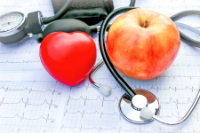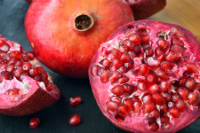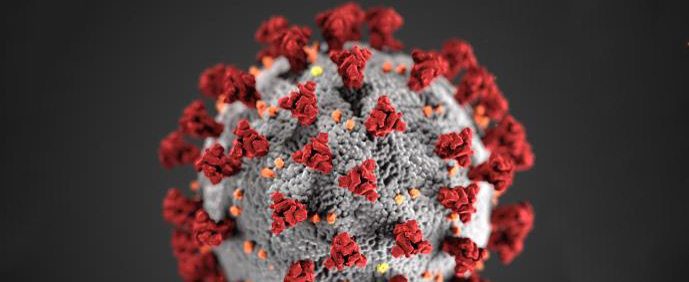Fast Fact
Laughter might be the perfect antidote to stress! In one study when people watched a funny movie, their blood flow increased by 20%!
The Heart: Powerful, but Vulnerable
 A key element of a healthy body is a healthy heart. The heart is the center of our cardiovascular system and beats an average of 100,000 times per day supplying oxygen rich blood to the whole body. Every day people in Madison make choices that have a profound affect on the health of this vital organ. Most heart disease (HD) is linked to risk factors such as lack of exercise, obesity, smoking, stress, and poor eating habits.
A key element of a healthy body is a healthy heart. The heart is the center of our cardiovascular system and beats an average of 100,000 times per day supplying oxygen rich blood to the whole body. Every day people in Madison make choices that have a profound affect on the health of this vital organ. Most heart disease (HD) is linked to risk factors such as lack of exercise, obesity, smoking, stress, and poor eating habits.
One major condition that can develop with these risk factors is Hypertension, also known as high blood pressure. Often called the ‘silent killer’, Hypertension can cause significant damage throughout the cardiovascular and other body systems and ultimately results in over 80 million deaths each year. As recently as 2005 Heart Disease caused 34% of all deaths in Wisconsin. Even more recently it was found to be the second leading cause of death right here in Dane County.
The Silent Killer
Blood pressure is the amount of pressure exerted on the inside of blood vessels as the heart pumps the blood through the body. When there is resistance in the vessels, the pressure rises and hypertension results. The longer hypertension goes undetected and/or uncontrolled, the greater the damage to blood vessels and other organs. Hypertension can lead to heart attack, stroke, ruptured blood vessels, kidney disease or failure, and heart failure.
Warning signs for high blood pressure are rare but can include headaches, blurred vision, lightheadedness, shortness of breath and nosebleeds. However, there are typically no warning signs or symptoms for hypertension, which is why it is called the silent killer.
Hypertension is diagnosed by looking at 2 numbers in your BP reading: Systolic pressure (the top number) is the pressure in your arteries when the heart beats (contracts). Diastolic pressure (bottom number) represents the pressure in your arteries between beats.
- Normal blood pressure is below 120/80
- Prehypertension is 120 – 139 systolic or 80 – 89 diastolic
- Hypertension is 140/90 or higher
The Potassium Secret for a Healthy Heart
You’ve no doubt heard the best thing to do when you have hypertension is to reduce the amount of salt/sodium in your diet. Did you know the average adult needs 4,700 mg of potassium daily compared to only 200 mg of sodium. Unfortunately for most of us, our eating habits give us way too much sodium – 3,300 mg a day – and not nearly enough potassium. This imbalance can increase your risk of developing hypertension.
What’s truly important for your heart, and a more accurate strategy to prevent high blood pressure, is to balance the relationship between potassium and sodium (salt) in your daily diet. Proper sodium-potassium balance is necessary for nerve transmission, muscle contraction, fluid balance, and the optimal health of all the cells in your body. In regard to the heart, potassium is particularly important for regulating heart rhythm and maintaining blood pressure.
By reducing your sodium intake, you are often correcting the sodium-potassium imbalance without realizing it. To further support your heart health, eat more potassium-rich foods such as sweet potato, spinach, banana, peas, legumes, apricots, avocados, halibut and molasses.
More Healthy Heart Tips
Heart-Healthy Diet Do’s: Eat a variety of fresh fruits and dark green veggies daily. Eat mindfully, not on-the-run. Reduce or eliminate packaged foods, sugar, and red meat.
Walk, No Need to Run: 30 minutes of daily, brisk walking lowers your risk for hypertension.
Be Calm: Learn to manage stress with healthy coping techniques, such as, deep breathing, yoga, meditation, gratitude journaling, and getting quality sleep.
Supplemental Support: Nutritional supplements shown to support a healthy heart include CoQ10, Essential Fatty Acids, Magnesium, Garlic and B-vitamins. Supplements you might have heard about–Natto-K (nattokinase), Guggul, or Niacin–should not be taken without Dr. Fenske’s supervision.
Labs to Assess Risk: Ask Dr. Fenske about comprehensive labs to screen for cardiovascular disease risk, including a lipoprotein profile, lipoprotein (a), homocysteine, and hs C-RP.
[hr]
Try Pomegranate (Punica granatum) for a Healthy Heart
 Inside a lumpy, thick-skinned pomegranate you’ll find a treasure of jewel-like arils – ruby seeds surrounded by sacs of flavorful juice. Pomegranate is both richly sweet and tart and exceptionally refreshing. Savor the flavor by eating the arils by the spoonful, or adding them to salads, smoothies, or a bowl of yogurt.
Inside a lumpy, thick-skinned pomegranate you’ll find a treasure of jewel-like arils – ruby seeds surrounded by sacs of flavorful juice. Pomegranate is both richly sweet and tart and exceptionally refreshing. Savor the flavor by eating the arils by the spoonful, or adding them to salads, smoothies, or a bowl of yogurt.
Modern research indicates that pomegranate may be beneficial for reducing risk and supporting treatment for arthritis, certain types of cancers, erectile dysfunction, and heart disease.
A compound found only in pomegranates called punicalagin is beneficial to the heart and blood vessels. Punicalagin is responsible for pomegranate’s antioxidant effects. In fact, pomegranate has more antioxidant power than red wine and green tea! Preliminary research shows that drinking unsweetened pomegranate juice helps lower cholesterol, lower blood pressure, improve blood flow to the heart, and may help protect against the formation of blockages in the arteries.
When buying pomegranate, don’t shy away from a fruit that isn’t perfectly round or feels heavy. Unusual shape, and weight indicate a fruit that is plump with arils and juice. Pomegranates do not sweeten once picked, so you’ll want to avoid fruits that look dried out.
Helpful Hints for Extracting Pomegranate Seeds
No Muss, No Fuss: An Easy Way to Extract Pomegranate Seeds (video)

HAPPY VALENTINE’S DAY
from Fenske Holistic Healthcare Center!
[hr]
Guiding Principles

The information offered by this newsletter is presented for educational purposes. Nothing contained within should be construed as nor is intended to be used for medical diagnosis or treatment. This information should not be used in place of the advice of Dr Fenske or another qualified health care provider. Always consult with Dr Fenske or another qualified health care provider before embarking on a new treatment, diet or fitness program. You should never disregard medical advice or delay in seeking it because of any information contained within this newsletter.
Image Attributions: click here



